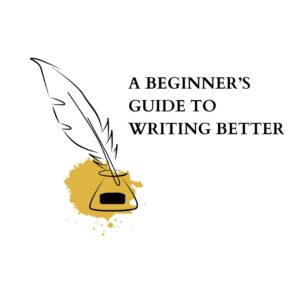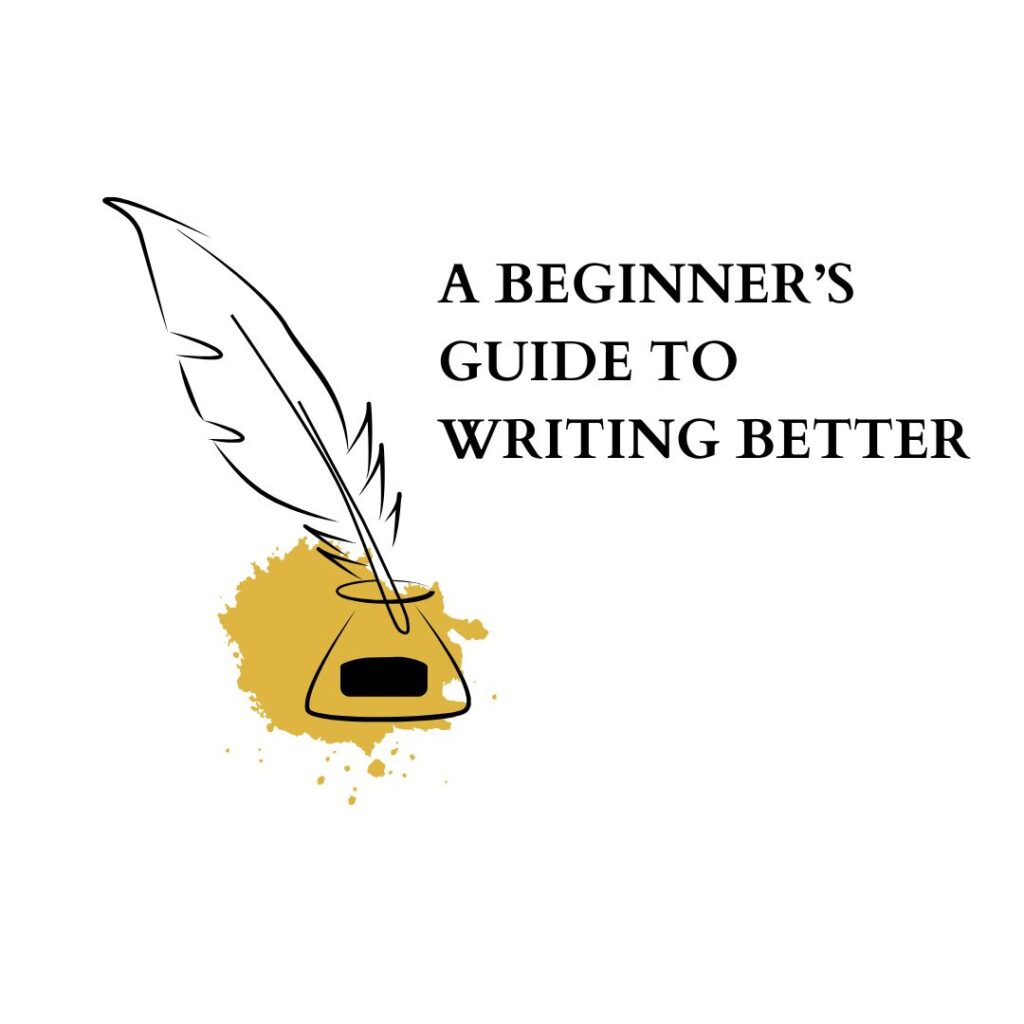A Beginner’s Guide to Writing Better: Mastering the Craft of Writing
Writing is an essential skill that transcends various fields, from creative writing to business communication. Whether you’re an aspiring author, a student, or a professional looking to improve your writing skills, understanding how to write better can significantly enhance your effectiveness in conveying ideas and engaging your audience. This comprehensive guide will provide practical tips and strategies to help you elevate your writing, making it clearer, more persuasive, and more enjoyable to read.

Table of Contents
Understanding the Basics of Good Writing
Good writing is characterized by clarity, coherence, and engagement. Here are some fundamental principles:
Clarity
- Define Your Purpose: Know what you want to achieve with your writing—whether it’s to inform, persuade, or entertain.
- Use Simple Language: Avoid jargon and complex vocabulary unless necessary for your audience.
Coherence
- Logical Flow: Ensure that your ideas progress logically from one point to the next.
- Transitions: Use transitional phrases to guide readers through your arguments or narratives.
Engagement
- Know Your Audience: Tailor your content to meet the interests and needs of your target readers.
- Write with Passion: Infuse your personality into your writing to make it more relatable and engaging.
Developing Your Writing Style
Your writing style is unique to you and can evolve over time. Here are ways to develop it:
Read Widely
- Expose yourself to different genres and authors to understand various styles and techniques.
Practice Regularly
- Write consistently—whether through journaling, blogging, or creative writing—to refine your voice.
Experiment with Techniques
- Try different narrative techniques, tones, and perspectives to discover what resonates with you.
The Importance of Planning and Outlining
Planning is crucial for effective writing:
Create an Outline
- Organize your thoughts by creating an outline that includes main ideas, supporting points, and examples.
Set Goals
- Define specific goals for each writing session (e.g., completing a certain number of words or sections).
Research Thoroughly
- Gather information and resources before you start writing to ensure accuracy and depth in your content.
Crafting Compelling Introductions
The introduction sets the tone for your piece:
Hook Your Readers
- Start with an interesting fact, quote, or question that grabs attention.
State Your Purpose
- Clearly outline what the reader can expect from the rest of the piece.
Provide Context
- Offer background information that helps readers understand the topic better.
Building Strong Paragraphs
Each paragraph should serve a specific purpose:
Topic Sentences
- Begin each paragraph with a clear topic sentence that summarizes its main idea.
Supporting Details
- Include evidence, examples, or anecdotes that reinforce the topic sentence.
Concluding Sentences
- End with a sentence that summarizes the paragraph’s main point or transitions smoothly into the next one.
Enhancing Clarity and Conciseness
Clear and concise writing is more impactful:
Eliminate Redundancies
- Remove unnecessary words or phrases that do not add value to your message.
Use Short Sentences
- Break complex ideas into shorter sentences for easier comprehension.
Avoid Overly Complex Vocabulary
- Choose simple words over complicated ones unless precision is required.
Using Active Voice for Impact
Active voice makes your writing more direct and vigorous:
Identify Passive Voice
- Recognize sentences where the subject receives the action rather than performs it (e.g., “The book was read by me” vs. “I read the book”).
Revise for Active Voice
- Whenever possible, restructure sentences to use active voice for stronger impact.
The Role of Editing and Proofreading
Editing is essential for polishing your work:
Take a Break Before Editing
- Step away from your writing for a while before revising; this helps you view it with fresh eyes.
Focus on Structure First
- Look at overall structure and flow before diving into grammar and punctuation details.
Use Tools for Assistance
- Utilize editing tools like Grammarly or Hemingway App to catch errors and improve readability.
Incorporating Feedback for Improvement
Feedback is invaluable in honing your skills:
Seek Constructive Criticism
- Share your work with trusted peers or mentors who can provide honest feedback.
Be Open-Minded
- Accept criticism gracefully; view it as an opportunity for growth rather than a personal attack.
Revise Accordingly
- Use feedback to make informed revisions that enhance clarity, coherence, and engagement in your writing.
Resources for Continued Learning
To further improve your writing skills, consider these resources:
- Books:
- “On Writing: A Memoir of the Craft” by Stephen King.
- “The Elements of Style” by William Strunk Jr. and E.B. White.
- “Bird by Bird: Some Instructions on Writing and Life” by Anne Lamott.
- Online Courses:
- Websites like Coursera or Udemy offer courses on creative writing, business communication, and technical writing.
- Writing Workshops:
- Attend local workshops or online webinars where you can practice writing and receive feedback from instructors.
Frequently Asked Questions (FAQs)
Why is improving my writing skills important?
Improving your writing skills is crucial for effective communication, whether in personal, academic, or professional contexts. Strong writing can help you convey ideas clearly, persuade others, and enhance your credibility as a writer.
What are some basic principles of good writing?
Basic principles of good writing include:
- Clarity: Ensure your ideas are easy to understand.
- Coherence: Organize your thoughts logically to guide readers smoothly through your content.
- Engagement: Write in a way that captures and maintains the reader’s interest.
How can I develop my unique writing style?
To develop your writing style:
- Read widely across different genres and authors to observe various techniques.
- Practice writing regularly to refine your voice.
- Experiment with different tones, perspectives, and narrative techniques.
What is the importance of planning and outlining before writing?
Planning and outlining help you organize your thoughts, establish a logical flow, and clarify your main ideas. This preparation can save time during the writing process and result in a more coherent final product.
How do I create a compelling introduction for my writing?
A compelling introduction should:
- Start with an engaging hook (e.g., an interesting fact or question).
- Clearly state the purpose of your piece.
- Provide necessary context to help readers understand the topic.
What are some tips for building strong paragraphs?
To build strong paragraphs:
- Begin with a clear topic sentence that summarizes the main idea.
- Include supporting details, examples, or evidence.
- End with a concluding sentence that reinforces the paragraph’s main point or transitions to the next idea.
How can I enhance clarity and conciseness in my writing?
To enhance clarity and conciseness:
- Eliminate unnecessary words or redundancies.
- Use short sentences for complex ideas.
- Choose simple vocabulary over complex terms unless precision is required.
What is active voice, and why should I use it?
Active voice emphasizes the subject performing the action (e.g., “The dog chased the ball”), making sentences clearer and more direct. Using active voice generally makes your writing more engaging and easier to read.
How important is editing and proofreading in the writing process?
Editing and proofreading are essential for refining your work. They help catch grammatical errors, improve clarity, and ensure that your ideas are presented effectively. Taking time to revise can significantly enhance the quality of your writing.
How can I incorporate feedback into my writing?
To incorporate feedback effectively:
- Seek constructive criticism from trusted peers or mentors.
- Approach feedback with an open mind, viewing it as an opportunity for growth.
- Revise your work based on specific suggestions while maintaining your voice.
What resources can I use to improve my writing skills further?
Resources for improving writing skills include:
- Books on writing craft (e.g., “On Writing” by Stephen King).
- Online courses on platforms like Coursera or Udemy.
- Writing workshops or local community classes for hands-on practice.
Conclusion
Writing better is a journey that requires practice, patience, and a willingness to learn. By understanding the fundamentals of good writing, developing your unique style, planning effectively, crafting strong paragraphs, using active voice, editing diligently, and incorporating feedback, you can significantly enhance your writing skills.Embrace this process as an ongoing journey—one that not only improves your ability to communicate but also enriches your personal expression! Start applying these strategies today to elevate your writing from ordinary to extraordinary!
Discover marketing services, interviews & publishing tools at SharingStories.



